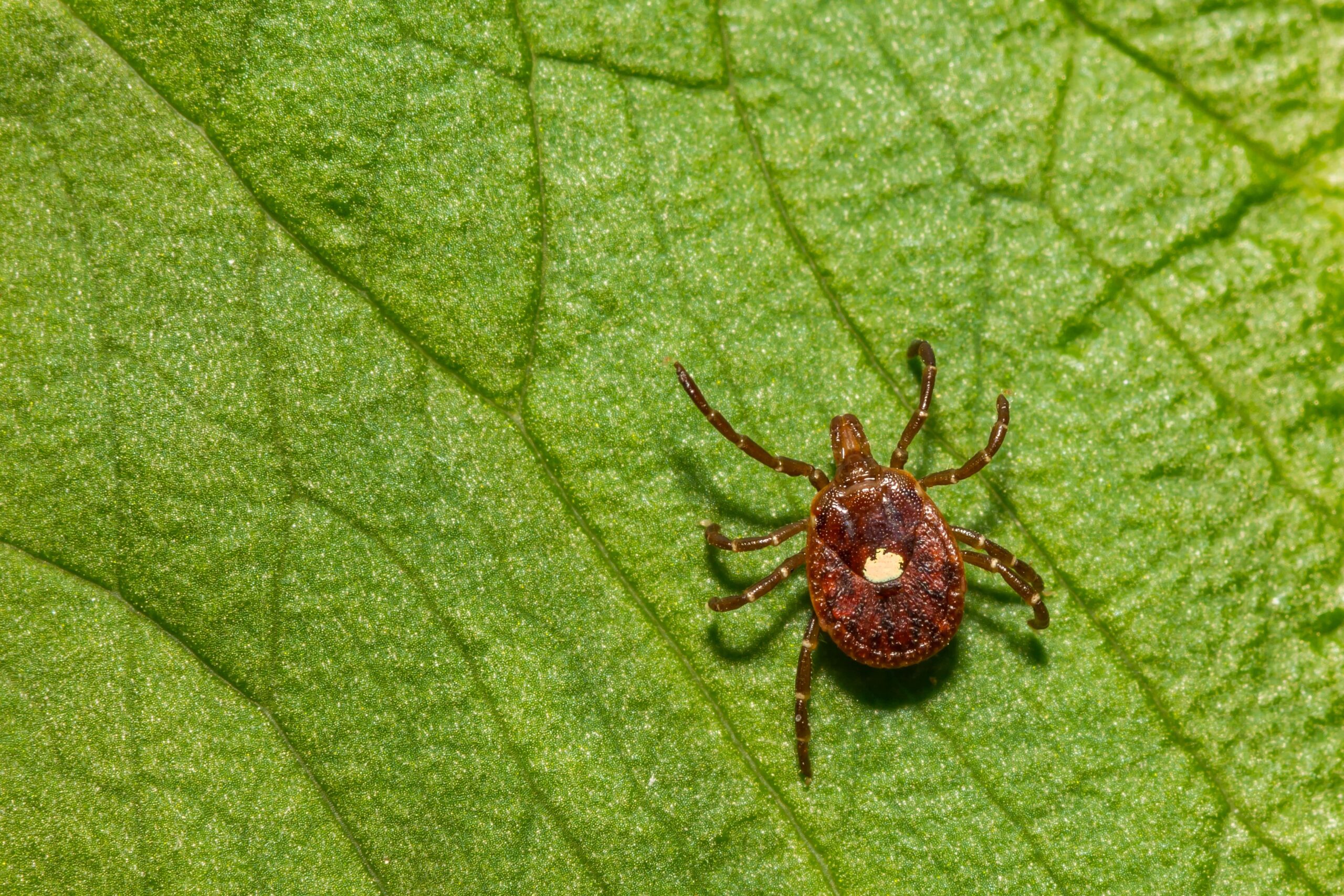Black-legged ticks are known for carrying bacterial diseases, including Lyme disease. New research suggests that their bite can also trigger alpha-gal syndrome (AGS), also known as the “mammalian meat allergy.” AGS is a serious allergic reaction to galactose-α-1,3-galactose (alpha-gal), a disaccharide found in red meat and other mammalian products, and in tick saliva. AGS has no cure and no treatment, and must be managed by strictly avoiding red meat and sometimes dairy. For many people, this means dramatic lifestyle changes.
Unlike typical food allergies, which are caused by proteins and provoke immediate symptoms, AGS reactions can take hours to develop and may range from hives and gastrointestinal symptoms to anaphylaxis. Researchers do not fully understand why humans can usually tolerate alpha-gal in the food we eat, but may develop strong immune reactions to it after a tick bite.
The syndrome’s prevalence in the United States has closely followed the geographical range of the lone star tick (Amblyomma americanum), which extends across the eastern, southeastern, and south-central states. However, emerging evidence suggests that bites from other tick species may also trigger this syndrome.
Case Study Similarities
In a recent report published in Emerging Infectious Diseases, researchers from the US Centers for Disease Control and Prevention (CDC) and other institutions documented a case that challenges conventional thinking about AGS. The study focuses on a 61-year-old woman in Washington who experienced repeated immune responses to alpha-gal following bites from the western black-legged tick (Ixodes pacificus).
Her experience wasn’t isolated. A second study published by CDC researchers tracked a case of AGS in Maine that was likely caused by a black-legged tick (Ixodes scapularis). Although the lone star tick is rare in Maine, researchers confirmed 23 AGS cases in the state from 2014 to 2023. Some of the affected individuals had no travel history to areas where the lone star tick is endemic.
“These findings might reflect a limited role for tick species other than A. americanum in [alpha-gal syndrome] development in the United States,” the researchers studying the Washington case wrote. They also noted that black-legged ticks have been linked to AGS cases in Australia, Scandinavia and Europe.
An Expanding Threat
The woman who was the subject of the Washington case first experienced anaphylaxis symptoms one month after a tick bite and six hours after eating beef. An investigation revealed that she had high levels of alpha-gal antibodies (27.40 kU/L compared to a reference range <0.1 kU/L). She was diagnosed with AGS and adopted a vegetarian diet. She had two subsequent bites from black-legged ticks over the following five years and experienced elevated alpha-gal antibodies each time. Although she did not experience severe symptoms after the two subsequent bites due to her vegetarian diet, the immune response (heat, extreme itchiness and redness) pointed to AGS.
The CDC estimates that more than 110,000 AGS cases occurred in the US between 2010 and 2022. Although most cases occur in places where the lone star tick is found, the research suggests that the risk could be more widespread, heightening the need for broad awareness and vigilance.
Some patients may never connect their symptoms to a tick bite, and a delay in symptom onset further complicates diagnosis. Considering the recent findings, the CDC advises medical professionals to consider AGS as a cause of anaphylaxis in patients from regions both within and outside the traditional lone star tick range.
A Changing Landscape
AGS is evolving from a regional problem to a national concern. If more tick species are involved, more people may be at risk. The recent findings underscore the need for enhanced tick bite disease surveillance.
Did you enjoy this blog post? Check out our other blog posts as well as related topics on our Webinar page.
QPS is a GLP- and GCP-compliant contract research organization (CRO) delivering the highest grade of discovery, preclinical and clinical drug research development services. Since 1995, it has grown from a tiny bioanalysis shop to a full-service CRO with 1,200+ employees in the US, Europe, Asia, India and Australia. Today, QPS offers expanded pharmaceutical contract R&D services with special expertise in pharmacology, DMPK, toxicology, bioanalysis, translational medicine, cell therapy (including PBMCs, leukopaks and cell therapy products), clinical trial units and clinical research services. An award-winning leader focused on bioanalytics and clinical trials, QPS is known for proven quality standards, technical expertise, a flexible approach to research, client satisfaction and turnkey laboratories and facilities. Through continual enhancements in capacities and resources, QPS stands tall in its commitment to delivering superior quality, skilled performance and trusted service to its valued customers. For more information, visit www.qps.com or email info@qps.com.





